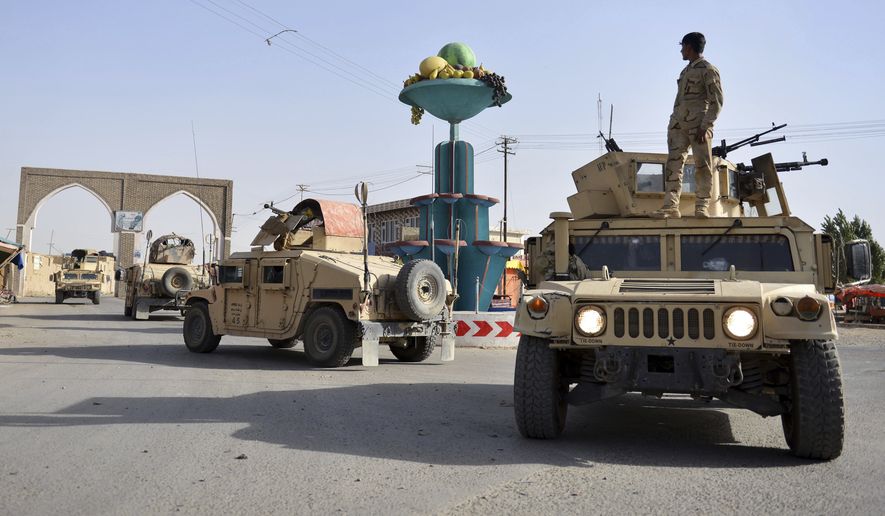The state of the recently contentious relationship between Pakistan and the Trump administration rests squarely on whether Washington’s new war plan for Afghanistan can turn the tide of the 17-year conflict, Pakistan’s top diplomat said.
U.S. commanders on the ground in Afghanistan, along with officials at the Pentagon and White House, have repeatedly stated Mr. Trump’s strategy of bludgeoning the Taliban into peace talks through battlefield victories is making progress. But officials in Islamabad, who U.S. administration officials say have contributed to the increasingly tenuous political and security situation in the war-torn country, remain wary Mr. Trump’s South Asia policy will bear fruit.
The future of U.S.-Pakistan relations “is dependent on the improvement of the situation in Afghanistan,” Pakistani Foreign Minister Shah Mahmood Qureshi said Wednesday. His comments, made during a speech at the Washington-based U.S. Institute for Peace, came after meetings with Secretary of State Mike Pompeo and National Security Adviser John Bolton.
“Secretary Pompeo is ready to listen,” Mr. Qureshi said, regarding his meetings with the top U.S. diplomat on repairing frayed U.S. relations with Pakistan.
Mr. Qureshi’s visit comes roughly a month after Pakistani cricket star-turned-politician Imran Khan took power in Islamabad as the country’s new prime minister. Mr. Khan’s Tehreek-e-Insaf party was swept into power in July after securing a political majority during highly scrutinized parliamentary elections that month, paving the way for Mr. Khan’s eventual nomination as prime minister.
Politically conservative with a nationalistic streak, Mr. Khan has made past statements empathetic to extremist groups such as the Taliban and has lambasted U.S. military actions in Pakistan and neighboring Afghanistan. However, Mr. Qureshi characterized his meetings with Mr. Pompeo and Mr. Bolton as positive, indicating Islamabad and Washington may be prepared to turn around a relationship that has deteriorated over the last several months.
“Building positivity at times is difficult,” Mr. Qureshi said. “Mindsets do not change overnight, they evolve,”
He added that evolution towards more positive relations was possible with the U.S. That said, the Pakistani diplomat made clear any criticism of Pakistan’s role destabilizing Afghanistan would derail any such progress.
“We cannot and should not be held responsible” for the difficulties in Afghanistan, Mr. Qureshi said.
The Trump White House took Islamabad to task for its support of groups such as the Haqqani Network and the Pakistani Taliban, during the roll out of the South Asia strategy last August. Islamabad has repeatedly countered such claims by touting their own losses to Afghan and Pakistani Taliban attacks in the years since the 2001 U.S. invasion of Afghanistan.
To that end, Mr. Qureshi said Pakistan would exhaust any and all options to help persuade moderate elements of the Taliban to the negotiating table.
“’Pakistan is willing and will use all our influence to do that … there is no other way” to end the war in Afghanistan, he said.
In June, reports surfaced that an American delegation met with Taliban officials in Doha, for the first known bilateral talks with the terror group. The move fell in line with the Trump administration’s strategy of forcing the Taliban into negotiations with Kabul.
Prior to Mr. Trump taking office, Washington has repeatedly deferred with direct talks with the Taliban for the duration of the 17-year war, repeatedly stating any peace deal needed to be brokered by Kabul. Washington’s decision to hold direct talks with the terror group — a longtime demand by the Taliban’s leadership — has undermined the legitimacy of the central government, critics claim.
• Carlo Muñoz can be reached at cmunoz@washingtontimes.com.




Please read our comment policy before commenting.